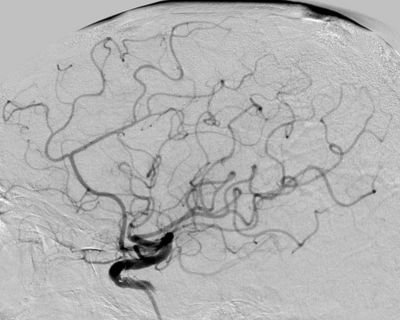Opening hours
| DR.KIRTI | |
| Mon-Sat : | 11am - 3pm |
| Evening : | 5pm - 7pm |
| Sunday : | 11am - 1pm |
| DR.AMBUJ | |
| Mon-Sat : | 9am - 10am |
| Evening : | 5pm - 7pm |
| Sunday : | with prior appointment only |
CONTACT INFO
- 1st floor, Aryan complex, Opp to panchwati ratnalaya, Gola road, Patna 801503
- +91 9934380782
- drambuj21@gmail.com

Endovascular Neurosurgery
-
This treatment utilizes catheters and imaging to treat neurological conditions, including aneurysms and strokes, through minimally invasive techniques inside blood vessels.
Description
-
Endovascular neurosurgery, also known as interventional neuroradiology, is a cutting-edge medical specialty. It involves the use of minimally invasive techniques to diagnose and treat a wide range of neurological conditions that affect blood vessels in the brain and spine. These conditions can include aneurysms, arteriovenous malformations (AVMs), stroke, and other vascular diseases of the central nervous system.
In endovascular neurosurgery, a neurointerventional specialist, often a neurosurgeon or an interventional radiologist, uses advanced imaging guidance and catheters to access the vascular system through tiny incisions in the body, typically the groin. They navigate these catheters through the blood vessels to the site of the problem, such as an aneurysm or a blocked blood vessel.
Once at the target location, various procedures can be performed, including:
Coiling: For aneurysms, a platinum coil is inserted into the aneurysm sac, promoting blood clot formation and sealing off the aneurysm to prevent rupture.
Stent Placement: Stents can be placed to open up narrowed or blocked blood vessels, improving blood flow to the brain.
Embolization: In the case of AVMs, embolic agents are injected to block abnormal vessels and reduce the risk of bleeding.
Thrombectomy: For acute stroke, clot retrieval devices are used to remove blood clots, restoring blood flow to the brain and minimizing brain damage.
Intra-arterial Drug Delivery: Medications can be directly delivered to the affected area to treat conditions like vasospasm following a subarachnoid hemorrhage.
Endovascular neurosurgery offers several advantages over traditional open surgery. It is less invasive, leading to shorter recovery times and reduced risks of complications. Patients often experience less pain and scarring, and hospital stays are typically shorter. Additionally, because the procedures are performed using imaging guidance, they can be highly precise.
However, it's crucial to consult with a neurointerventional specialist to determine the most appropriate treatment for your specific condition. Endovascular neurosurgery has revolutionized the field of neurology, offering hope and improved outcomes for many patients with vascular-related neurological disorders.
Gynecologist
- CESAREAN DELIVERIES
- HYSTERECTOMIES
- INFERTILITY TREATMENT
- POSTMENOPAUSAL SYMPTOM
MANAGEMENT - CERVICAL CANCER SCREENING ...
Neurologist
- HEADACHE TREATMENT
- BACKACHE MANAGEMENT
- SPINE INJURY CARE
- HEAD INJURY TREATMENT
- SEIZURE DISORDER CARE
- SLIP DISC CARE ...
